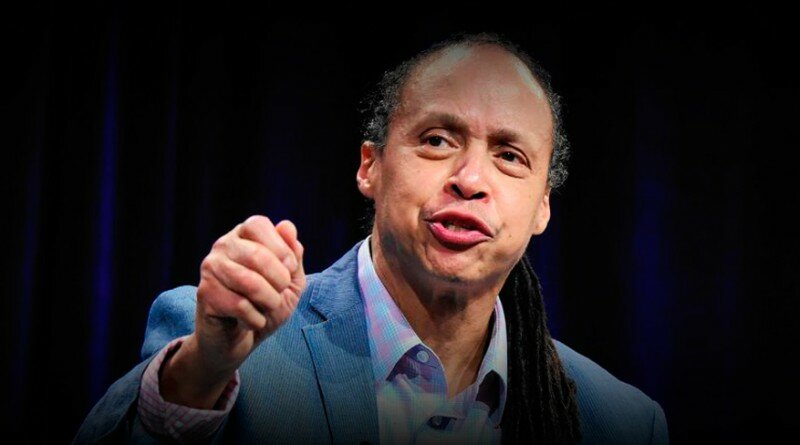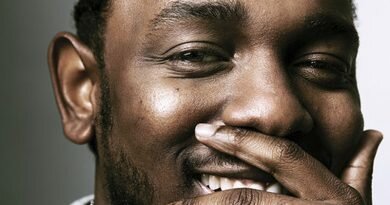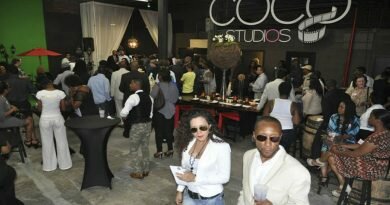blackmattersus.com
First of all, many people know you in many different roles, as a member of the Black Panthers, as an activist, as a producer, as a writer and director, as a professor. What’s your main business now? What activity are you mainly involved in?
Jamal Joseph
Well, I think the main business is the same. I can describe it in one word: I’m an ACTIVIST. I’m an artist and an activist that sees the creative arts as a way to empower people, make people aware and then help them think – when they see the kind of narratives that I help create or that I empower people to make – about how we can create new narratives for our lives and of course, that is about personal transformation, it’s about community justice, national justice, international justice. And with justice it’s not just changing the laws and it’s not just ending class or race oppression, or racial discrimination, incarceration, it is about how we realize and become the best versions of ourselves as human beings.
blackmattersus.com
Let’s talk about your activism. Could you clear some questions about Black Panthers Party? The history of this movement is described very poorly and we see many conflicts of accounts from different sides. For example, if the story is told by the state and police it would be the story about an aggressive group of people who were armed and who conflicted with police everywhere. But people from the other side tell us that the Black Panthers was a movement and what they did was only police the police. Could you tell your story of Black Panthers?
Jamal Joseph
Well, let me start by saying that when you walked into the Panther office, what was clear was that police brutality, as you said policing the police, was just one aspect of what the Panthers were about. This is the 50th anniversary of the founding of the Black Panther Party and it’s also the 50th anniversary of a brilliant document known as the Black Panther 10-point program. When you read the 10-point program, you’ll see that it talks not just about police brutality but it talks about housing, education, medical care, the war in Vietnam and ending war. So although the most visible aspect in terms of the press and people who first became aware of the Panthers was with the community patrols and us confronting the police, that was just part of what you did daily as a Panther. You were up every morning in that Black Panther breakfast program, feeding kids in the community, you were then going to, it might be a welfare center, it might be a health clinic and it might be somewhere else where you were organizing people around issues. The Panthers had a free medical program, a free clothing program, liberation schools, the Panthers worked with organizations to decentralize schools and hospitals. So we were on the forefront of a lot of issues. The other really important thing to understand about the Black Panther Party was that the Panthers had a class analysis of what was going on in America. We didn’t say that the things that were happening to Black people was just because we were black and because white people hated Black people. Panthers realized that when you have a system, capitalism, that puts profits before people, then people become commodities, not human beings. So slavery, and I learned this as a young Panther, wasn’t about just people running to Africa and saying we hate Black people, we’ll enslave them. Slavery was a business and slavery built this country. It was profitable because when you don’t have to pay people for their labor, you make a lot of money. Racism was the ideology, was the marketing strategy for this business that we know as slavery because you had people that weren’t comfortable with the way slavery was expanding. And so the people that were in the slave trade said, “Hey listen, I know you’re uncomfortable because we shouldn’t enslave other human beings, but these Africans that you see before you are not human, so you’re not breaking any kind of legal law, you’re not breaking God’s law, because God wants you to work the land and prosper, that’s what it says in the good book. And so not only is it not a bad thing to do, it’s a Christian thing to do.” So I don’t want it to be confused, and I think a lot of people get confused that the Panthers was just some racial organization. Panthers wasn’t just about flip-flopping, it wasn’t just about if all Black people were in power, and all the white people were oppressed, now we would have justice. We were saying that when you’re having a system that exists on the backs of other people, and that’s the only way it can exist, in order for me to be rich a lot of people have to be poor, in order for me to be totally free a lot of people have to be oppressed, that that whole system needs to be changed, not just switch around the checker or the chess pieces so that all the black pieces are on one side of the board and all the white pieces are on another side of the board. That’s what the Panthers were talking about. That’s what revolution is about, totally changing the system and creating a new paradigm, a new society that is just and equal for all people.
blackmattersus.com
Of course, we cannot avoid asking about the trial that you faced 45 years ago as one of the Panther 21. I read this story and it has striking similarities with the story of MOVE 9, which I’m sure you know of, which took place just 8 years after the indictment of the Panther 21. Could you tell us more about your trial?
Jamal Joseph
So the Panther 21 was a case, you know, when the government decided to attack the Black Panther Party, and to give you just one second to linger on this idea, it is a real threat to the government when you start talking about class struggle, not just race. When Dr. King began to talk about the war in Vietnam as a war of capitalist expectation, that’s when Dr. King was attacked and killed. Remember, when Dr. King was in Memphis, he was there organizing both Black and white sanitation workers to protest how they were being treated. So he was saying, “Listen, the Civil Rights movement is going to join forces with the Labor Movement to begin to talk about what’s wrong with capitalism.” Until that particular period of time there was one attempt on his life by this deranged woman, and he went to jail as a result of civil disobedience. But when he began talking about class struggle, and he gave a famous speech at Riverside Church a year before he was killed where he talked about poverty, racism and war as the three evils of America, and he talked about capitalism, he said the war in Vietnam is a war of capitalist exploitation, Dr. King was dead within a year. Malcolm X left the Nation of Islam, and people simplify this. They say Malcolm came out of the Nation of Islam and he went to Mecca and he said, “Look I’ve prayed with white Muslims and Chinese Muslims and people from all around the world so I no longer believe that the white man is the devil.” Malcolm was much better than that. He started talking about capitalism and he started talking about prolonged resistance to oppression. When he started saying those words, he was dead within a year. And the Black Panther Party said, “All power to the people.” And when we break that down and we would say that means black power for Black people, it means white power for white people, brown power for brown people, red power for red people, we defined what that meant and started talking about the fact that there were poor white people who were being exploited, Latinos, Asians, and that we need to all come together to overthrow this system. Now they called us the 99%. That’s when the Panthers had to go. That’s the reason why the Black Panther Party was attacked and wiped out while other organizations like the Ku Klux Klan and other white racist organizations continued to live if not thrive. When you begin to really talk about capitalism and really changing radically, redistributing the wealth and the power, that’s when they attack you. Now they attacked us in 2 ways. One was the way that when you see the murder of Fred Hampton, and police raiding Panther homes and offices, planting bombs, shooting people, that was the overt way. There’s another thing known as the Counterintelligence program, COINTEL PRO, that was launched by J. Hoover in the FBI. The Counterintelligence program infiltrated Black Panther organizations, different chapters with informants and undercover cops, planted false evidence, planted lies and rumors that made Panthers suspicious of each other, planted lies and rumors and then gave this information to the local police. They would make people attack Panthers, arrest them, frame them up, some of them are still in prison who have been political prisoners for 30-40 years. That was how conspiracies were used against the Panthers and against other organizations like MOVE. They come up with these conspiracy cases, they say that you were in your meetings planning to attack the police or a public monument and then jail you, and then use these same informers and these manufactured documents to lock people up. And that’s what the case of the Panther 21 was about. Afeni Shakur, Tupac’s mum, was part of that case. So because we had very good lawyers and also because of Afeni and another brother named Michael Aloysius Tabor defending themselves and because we chose not to deal with defending ourselves against the evidence – even when defending ourselves was wrong, we represented ourselves – but to put the American government on trial, to show the jury, that we live in a country that oppresses, frames, imprisons and murders people, a racist, decadent government, the jury became educated, and to the surprise of everyone including us, just found the Panther 21 not guilty after a 13 month trial.
blackmattersus.com
What do you think, can we name this kind of persecution directed at the Black Panther Party and to MOVE by the police and the FBI as repression? Was this action planned by politicians and the heads of these organizations with the goal of terminating Black rights movements?
Jamal Joseph
The answer is yes. They worked together, and it was a program that was coordinated between the police, the FBI and the highest form of the government known as COINTEL PRO, the Counterintelligence program. You cannot talk about the Black Panther Party without talking about the Counterintelligence program. Let me add that this Counterintelligence program is what we are up against now. It is not only being used again today the way they try to criminalize Black Lives Matter, the way they try to weaken it, the way they try to say that it’s a racist organization, all of these tactics were used before. The young activists who are part of Black Lives Matter need to pay attention to that. It was also used in hip hop, it was also used in the division between the East Coast and the West Coast, and the thing that ultimately cost Tupac Shakur and Notorious BIG their lives. When rumors and lies are planted to turn friends into enemies and to destroy organizations and movements, even when you look at young rappers that are not yet political, the government and these businesses see their potential before we even see it and would destroy you before you even get big.
blackmattersus.com
What do you think about police brutality now?
Jamal Joseph
Well, I think the same thing that I thought when I was a Panther. We have people who have taken oaths to protect people who are brutalizing people and locking them down. You can’t treat people like that unless you don’t think that they are human. You have cops that are on the streets that feel more concerned and humanity for a kitten that’s stuck up a tree, over a child that’s looking for a lost doll, than they do for young Black men and women. And that is leading into what we call institutionalized racism. This is not just a few bad cops, we need to stop that. We need to understand that this is a culture that they are part of. That’s why I say the way police interact with the community goes back to slave patrols that were set up to capture and murder Black men and women who ran away. It is the same mentality. “Go get my property, go discipline my property, go show my properly that if they dare to rebel, if they dare run away, if they dare to stand up, this is what will happen to them.”
blackmattersus.com
You still talk so much like a very active activist. Do you have any recent activities connected with your activism?
Jamal Joseph
The youth program that I run, IMPACT Repertory Theater, when you see there’s a protest against police brutality or a rally to defend political prisoners, I’m active in my way. My films that I make, my documentaries about mass incarceration, about the children of incarcerated parents, about people coming home from prison, a film that I’m going to work on about the Black Panther Party all reflect that my politics in terms of more power to the people and liberation and justice are the same.
blackmattersus.com
Your film, Knights of the South Bronx was dedicated to Black children from families with many social problems. What inspired you to make a film from that angle?
Jamal Joseph
Well, again, I think that we’re underrepresented in film. Our stories are underrepresented. There are a cache of stories that can be told to humanize us, our children and our struggles. So Knights of the South Bronx reflects that. I have a new film that I wrote and directed called Chapter and Verse that’s about a man coming out of prison, trying to rebuild his life in Harlem, and stars Daniel Beaty. But it also stars Omari Hardwick from the show Power, Loretta Divine, similar theme. This is our humanity, these are our stories, these are our lives, our lives matter.
blackmattersus.com
You wrote many plays while you were in Leavenworth. You got 2 college degrees as well. Does this mean that you decided to change your life and you were like, “Well I’m done with this. I want to do something else.” Or is it that you just wanted to become stronger and more intelligent to be able to fight better?
Jamal Joseph
I got the best advice that anybody could get not only in prison, but in life when I first stepped in Leavenworth and all the prisoners said you can serve this time or you can let this time serve you. And so I just took advantage. I wasn’t just going to sit in my cell and do nothing. I took advantage and read as much as I could, got as much education as I could, I knew I wanted to be an educator, an artist and an activist that reached as many people as possible. And so that was me just kind of understanding that the goals of the revolution were the same but that the weapons had to adapt with the time. Our Panthers carried shotguns and law books because those were the dynamic weapons of the time. The dynamics and weapons of the day are still organizing folks to put out those cellphones, it’s the music, it’s film, it’s poetry, it’s hip hop, it’s all the things that can be used in a revolutionary way to raise consciousness and get people to organize and fight for their freedom.
blackmattersus.com
Your art, your plays, your poems and your films, they’ve showed a new you. How did your time in the Black Panthers change your life and that of your friends?
Jamal Joseph
Well, what the Panthers thought me was one great lesson. If you ask any Panther, we always remember one thing we were thought to believe, and believe me, we studied. We read Malcolm X, Che Guevara, Marx, Lenin, Mao Zedong, but if you ask them the one thing we were thought to believe above all other things, they would say we were thought to have an undying love for the people. Serve the people, defend the people, love the people, mind, body and spirit, it’s the number one lesson. It’s not to put my life first, but to put the lives of my community and humanity in general first. When you believe that, then when you wake up in the morning with that as your guiding spirit, you’ll know the right thing to do, the right issues to fight for, the right thing to sacrifice your life for.
blackmattersus.com
Right now do you get calls from people to recreate the Black Panthers?
Jamal Joseph
No, I think people realize that there are lessons to be learned from the Panthers but that there needs to be a new model and a new form of resistance. And that’s why even the New Black Panther Party doesn’t quite have it right. They have the uniforms, but they don’t have the analysis of class struggle that I talked about before, and that important thing of those community programs where Panthers were in the community everyday with the health clinic, with the breakfast program, with the liberation schools, serving the community.
blackmattersus.com
What are your plans for film making and theater?
Jamal Joseph
Well, I need to continue to do the work. I told you I have a film that’s coming out early next year, Chapter and Verse. It’s coming out late January of 2017, and next year I’ll be filming Panther Baby.
blackmattersus.com
What do you have to say to the leaders of the Black community and Black rights activists today?
Jamal Joseph
It’s very important to listen to folks in the community about what they’re going through and what their needs are. We do need to defend ourselves against police brutality, and against mass incarceration, but people are in desperate need of jobs, housing, education, and we have to address those needs and fight and understand that that’s part of making one’s life matter. So Panthers really understood that fighting the police was just one aspect of the battle. Please read the Black Panther 10-point program and understand that we knew that there were 10 different things that we needed in the community, not just police brutality, and people should fight for those 10 things today.








